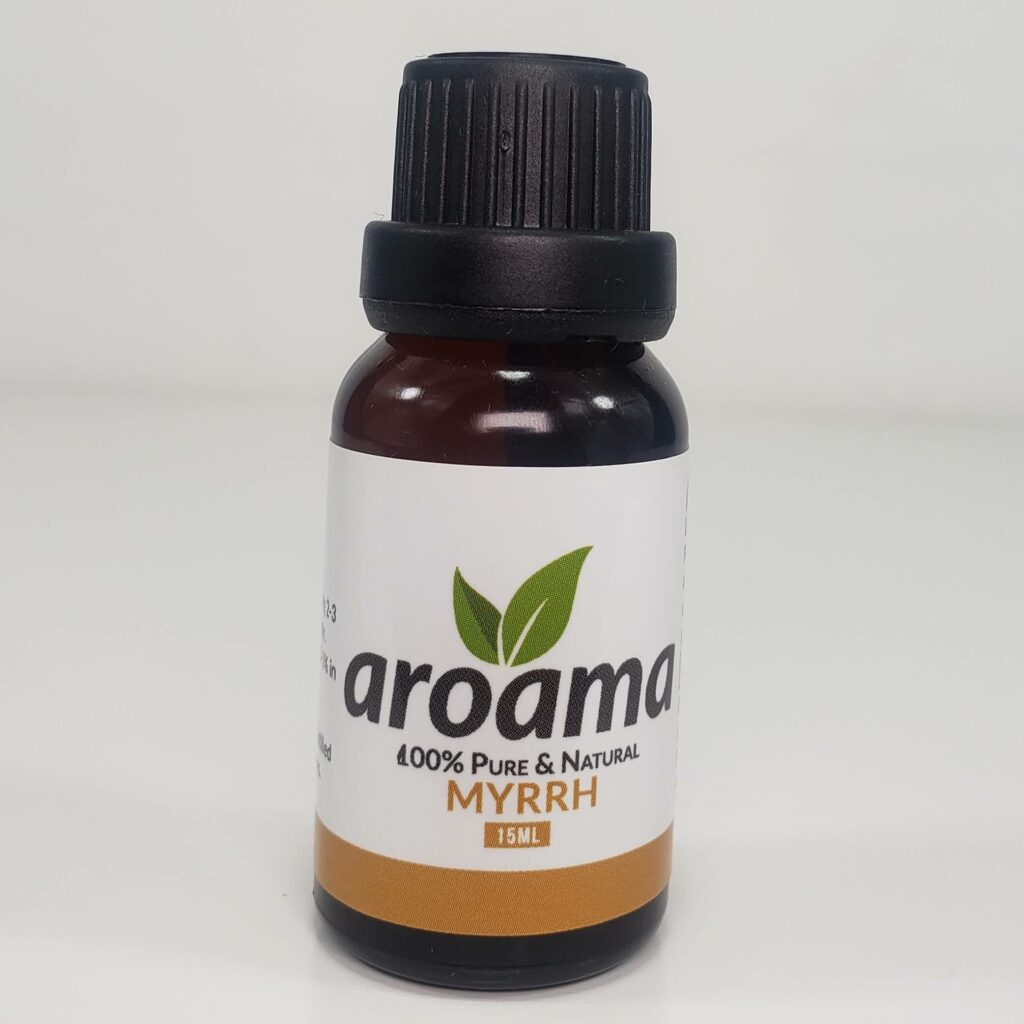Myrrh essential oil has been valued for centuries, especially for its impressive wound-healing abilities. Today, this natural remedy continues to gain popularity, offering a gentle yet effective way to support wound recovery, reduce inflammation, and prevent infection. Derived from the resin of the Commiphora myrrha tree, myrrh essential oil contains compounds that actively promote skin healing. In this article, you’ll learn how to use myrrh essential oil for wound healing and explore why it’s so effective.
Why Myrrh Essential Oil Works for Wound Healing
Myrrh essential oil is packed with powerful compounds, especially terpenoids, which are known for their anti-inflammatory and antioxidant effects. These active compounds protect cells, soothe inflamed tissue, and speed up skin repair. Additionally, myrrh oil is antimicrobial, making it highly effective against bacteria, viruses, and fungi.
- Anti-Inflammatory Effects: Myrrh essential oil directly targets and reduces swelling, redness, and discomfort around wounds, encouraging faster healing.
- Antioxidant Protection: The antioxidants in myrrh oil protect skin cells from further damage, allowing for a smoother, healthier healing process.
- Antimicrobial Properties: Myrrh oil actively fights against bacteria, keeping wounds clean and lowering infection risks.
How to Apply Myrrh Essential Oil for Wound Healing
Using myrrh essential oil for wound healing is straightforward, but it’s important to apply it correctly for safe, effective results. Here are the steps:
Step 1: Dilute the Oil Properly
Always dilute myrrh essential oil with a carrier oil, such as coconut or jojoba oil, to prevent irritation. Mix three drops of myrrh oil with a teaspoon of carrier oil for a safe concentration.
Step 2: Cleanse the Wound Area
Before applying any oil, gently cleanse the wound with water and mild soap. This step helps remove dirt and bacteria. Once clean, pat the area dry with a fresh cloth.
Step 3: Apply the Myrrh Oil
Using a cotton swab, dab the diluted myrrh oil directly onto the wound. This application will promote healing while keeping the skin hydrated, which is essential for wound recovery.
Step 4: Cover the Wound (if needed)
For larger wounds, you can cover the area with a sterile bandage after applying myrrh oil. This method helps protect the wound while boosting the oil’s healing effects.
Key Benefits of Myrrh Essential Oil for Wound Healing
1. Speeds Up Skin Regeneration
Myrrh essential oil directly stimulates new cell growth, allowing the skin to heal more quickly. This benefit makes it ideal for minor cuts, scrapes, and small wounds.
2. Reduces Scarring
Since myrrh essential oil promotes healthy skin growth, it minimizes the formation of scars. Keeping the area moisturized also supports scar prevention, giving the wound a chance to heal smoothly.
3. Relieves Pain Naturally
Inflammation around wounds often causes discomfort. Myrrh essential oil’s anti-inflammatory properties work to reduce pain and provide a soothing effect, offering a natural form of relief.
4. Lowers the Risk of Infection
Myrrh essential oil’s antimicrobial action guards against various pathogens, keeping the wound area clean. Regular application can actively prevent infection, leading to safer healing.
Safety Tips
While myrrh essential oil is effective, it’s essential to use it safely. Here are some tips:
- Dilute Correctly: Myrrh oil is very strong. Use it with a carrier oil to avoid skin irritation.
- Avoid Open, Deep Wounds: Apply myrrh essential oil only to minor cuts or partially healed wounds. Avoid using it on deep, open wounds as it may cause irritation.
- Test for Allergies: Perform a patch test on a small skin area to check for any reactions before applying myrrh to the wound.
Myrrh essential oil provides a natural alternative to synthetic ointments and creams, which often contain artificial chemicals. By choosing myrrh, you get a chemical-free, gentle treatment that works with most skin types. Not only does it heal, but it also soothes, protects, and nourishes the skin.
Its unique combination of anti-inflammatory, antimicrobial, and antioxidant properties makes it ideal for promoting wound healing.


Pingback: Myrrh Essential as an Ayurvedic